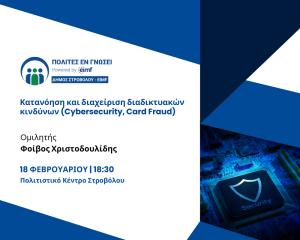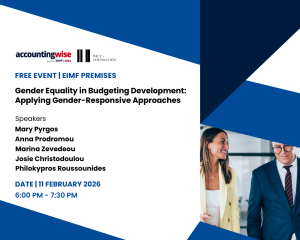Financial Mindfulness | Cultivating Clarity, Presence, and Precision in Decision-Making

In a profession defined by deadlines, detail, and constant decision-making, clarity of thought is both a challenge and a competitive advantage. As financial professionals navigate growing complexity, stress, and information overload, the ability to stay mentally focused and ethically grounded has never been more essential.
The webinar explores how awareness and presence can improve professional judgement, reduce bias, and strengthen integrity in financial decisions. This webinar introduces the M.I.N.D.S. Framework, a practical five-step approach designed to help professionals think more clearly, decide more effectively, and act with greater confidence and composure.
Drawing on insights from behavioural finance and cognitive psychology, participants will discover simple, actionable ways to cultivate focus and calm in their daily work. By the end, they will understand that mindfulness is not about slowing down, it’s about seeing more clearly, thinking more deeply, and deciding with precision.
Learning Objectives
By the end of this webinar, participants will be able to:
• Understand the concept of financial mindfulness and its role in improving professional judgement.
• Recognise how distraction, stress, and bias affect clarity and decision quality.
• Apply the M.I.N.D.S. Framework to make more balanced and ethical financial decisions.
• Strengthen focus, composure, and self-awareness in demanding professional situations.
• Integrate simple mindfulness practices into daily work to enhance clarity and integrity.
Webinar Agenda
Opening Insight | The Cost of Mental Noise
• The hidden cost of distraction in financial work.
• How overthinking and multitasking distort judgement.
• Framing mindfulness as a decision-quality enhancer, not a relaxation exercise.
Understanding Financial Mindfulness
• Mindfulness as active awareness in thought and action.
• The three dimensions of financial mindfulness:
• Cognitive awareness – noticing patterns in your thinking.
• Emotional regulation – separating data from emotion.
• Ethical presence – pausing before acting, aligning with professional integrity.
• Example: A CFO under deadline pressure choosing awareness over reactivity.
The Science of Attention and Bias
• How the brain processes information under stress.
• System 1 vs System 2 Thinking – balancing intuition and analysis.
• Common biases in accounting and finance: anchoring, confirmation, and overconfidence.
• Research insights: mindfulness improves focus, memory, and rational control.
The M.I.N.D.S. Framework
A five-step practical model for applying mindfulness in accounting, auditing, and financial management:
M — Moment Awareness: Pause and become present before deciding.
I — Identify Influences: Recognise emotional, social, or contextual pressures.
N — Navigate with Neutrality: Examine facts objectively without attachment.
D — Deliberate with Depth: Ask deeper questions and seek alternative views.
S — Seal with Integrity: Conclude decisions aligned with ethics and professionalism.
• Application Example:
– A client pressures a financial consultant to alter reporting timing.
– Walking through M.I.N.D.S. step-by-step demonstrates clarity, neutrality, and integrity in practice.
Real-World Applications
• Practical case-based discussions and reflections on mindful decision-making in high-stakes contexts:
• Investment Committees: Maintaining calm reasoning under uncertainty.
• Audit Teams: Managing time pressure without cognitive shortcuts.
• Ethical Dilemmas: Balancing accuracy, integrity, and stakeholder demands.
• Discussion: how awareness transforms professional conduct and client trust.
Reflection and Takeaways
• Three micro-practices:
– The 90-second pause before a major decision.
– The weekly “bias check” reflection.
– The “integrity question”: Would I defend this decision publicly?
– Guided reflection on mental clarity and personal growth.
Why You Should Attend This Webinar
In the fast-paced and high-pressure environment of accounting and finance, professionals are often required to make complex decisions quickly, while managing constant demands, deadlines, and distractions. Over time, this pace can blur focus, cloud judgement, and weaken the connection between clarity and ethical intent.
This webinar introduces a new dimension to professional competence, mindfulness as a practical tool for decision-making. It will help you strengthen your mental focus, recognise the influence of bias and emotion on your reasoning, and make decisions with greater balance and integrity. You will discover how to cultivate calm awareness amid pressure, how to remain objective in uncertain situations, and how to integrate mindful thinking into your daily professional routine.
Participants who attend the full webinar will receive a Certificate of Attendance and earn 1 CPD unit.
Speaker | Marios Mortis | Trainer & Accountancy Programmes Leader
Organised by the AccountingWise Centre | Promoting professional integrity, critical thinking, and excellence in accounting and finance education.






